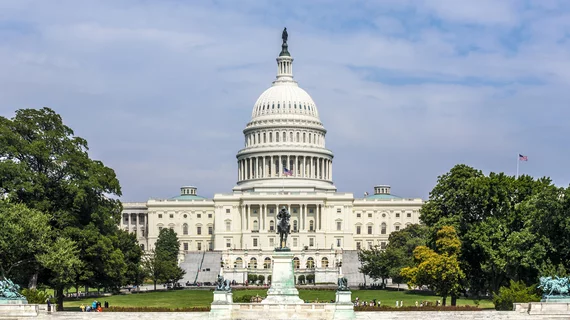Trump sends drug pricing reform principles to Congress
President Trump has sent his wish list of drug pricing reform priorities to Capitol Hill, the White House reported March 10.
The list, which includes limited drugmakers’ price increase and capping certain out-of-pocket expenses for Medicare beneficiaries, includes policies that already have bipartisan support “and would bring lasting relief from incredibly high drug prices for America’s seniors,” the announcement reads. The list does not include specific policy proposals, but is a broad list of goals.
Trump has voiced his intentions to lower drug prices throughout his presidency, though prices still increased at the start of 2020 and in 2019. The administration also proposed an international pricing index for Medicare Part B drugs last year and finalized a rule to require hospitals to publicly post their negotiated rates for services.
Trump’s latest list asks Republicans and Democrats in Congress to consider legislation that would cap annual out-of-pocket pharmacy expenses for Medicare Part D beneficiaries as well as provide an option to cap monthly out-of-pocket pharmacy expenses for these beneficiaries. He also wants to offer protection for seniors “against the out-of-pocket cost cliff created by ObamaCare” and enable insurance company to negotiate better prices for expensive drugs through incentives. He lastly asked to limit drugmakers’ price increases.
The President’s list comes as CMS recently announced a new model for enhance Medicare Part D plans that would cap monthly insulin copays at $35.

